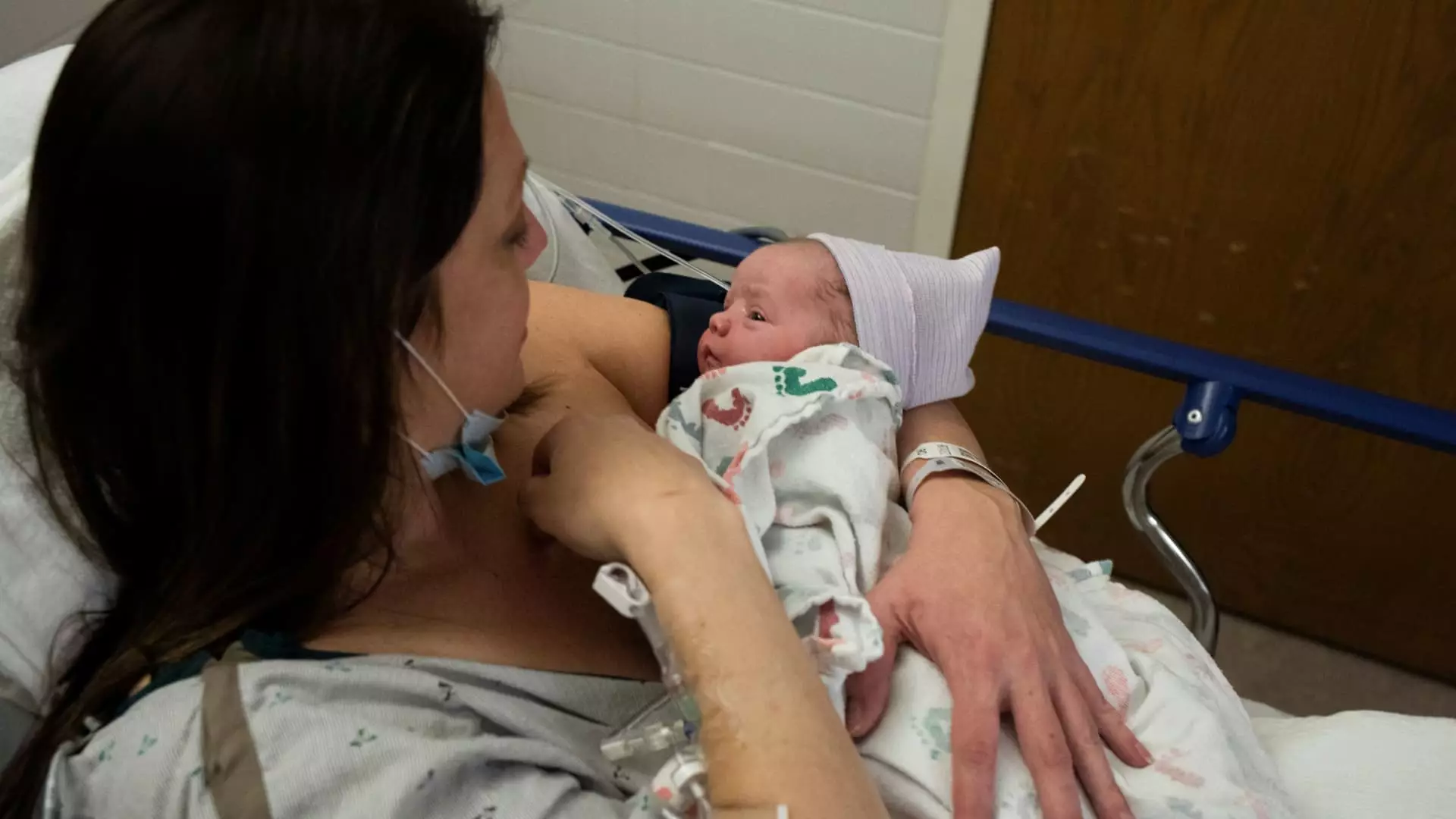America finds itself at a crossroads, grappling with a fertility rate that stands at a staggering 1.6 births per woman—far below the 2.1 births needed to sustain its population. This disconcerting trend signals not just the personal choices of individual families, but a far-reaching economic crisis waiting to unfold. The implications are stark. As noted by economists like Melissa Kearney from the University of Maryland, this demographic shift foreshadows a future where our population could decline, fundamentally altering the fabric of American society.
This isn’t merely a statistical anomaly; it’s a profound transformation that deserves our immediate attention. If present trends persist, we may soon grapple with a labor shortage that sends tremors through essential social services such as Social Security and Medicare. These programs, which are predicated on a healthy ratio of workers to retirees, may face unprecedented strain as the number of available contributors dwindles. What does a nation without enough young people to support an aging population look like? It could be a landscape fraught with financial turmoil and increased hardship for retirees who have contributed to these systems over decades.
Government Responses: Financial Incentives and False Hopes
In light of this pressing crisis, lawmakers from across the political spectrum are busy crafting solutions, proposing a suite of financial incentives aimed at rekindling America’s birth rates. Leaked reports indicate that the White House is contemplating one-time payments of $5,000 for each newborn, an initiative aimed at lessening the perceived economic burdens of parenting. Similarly, a massive tax package recently passed by the House includes increased child tax credits and “Trump Accounts,” which aspire to provide a $1,000 gift upon a child’s birth.
Yet, one must question the effectiveness of these initiatives. While well-intended, can financial rewards truly alter the intrinsic calculus that comes with parenthood? According to Kearney, the long-term decision to have children is influenced more profoundly by lifestyle choices and cultural shifts than by short-term monetary incentives. Bringing a child into the world demands an 18-year emotional, physical, and financial commitment. It’s a choice that far exceeds a mere one-time payment, and thus, we must scrutinize the efficacy of these incentives.
Beyond the Financial: A Cultural Shift
The fertility issue transcends mere economics; it is deeply embedded in cultural attitudes. Young adults today prioritize their education, careers, and financial stability over traditional milestones like marriage and parenthood. Sociologist Brad Wilcox highlights this shift, noting that the collective mindset among millennials is not about rushing into family life, but about maximizing personal development. This cultural frame complicates matters further, as it suggests that simply throwing money at the problem may lead to negligible results.
Historically, fertility rates have rebounded following economic downturns. However, the aftermath of the Great Recession revealed a disturbing trend: no significant recovery occurred, not just in the U.S. but across the world. Experts, including Karen Guzzo from the University of North Carolina, have noted this unexpected stagnation, leading demographers to reevaluate the dynamics of family planning and societal expectations. A deleterious combination of economic uncertainty and shifting values poses a conundrum for policymakers who have relied on past patterns as a blueprint for the future.
Looking Forward: A Call for Comprehensive Strategies
Addressing the fertility crisis in America requires a multi-faceted approach that goes beyond financial payments. It necessitates a societal realignment towards valuing parenthood and family life as integral parts of personal fulfillment. Policies should also consider comprehensive family support systems, affordable childcare options, and flexible workplace arrangements conducive to raising children without abandoning professional aspirations.
As America stands poised on the brink of a demographic collapse, we must engage in a robust dialogue about the values we hold dear. A culture that embraces both professional ambition and familial responsibility will be essential for encouraging a new generation to embrace the joys of parenthood. Failing to do so will herald a future marked not just by economic downturn but a fundamental shift in the American way of life. The time for action is now; it is our responsibility to cultivate a society where children enrich our future rather than become an untenable burden.


Leave a Reply